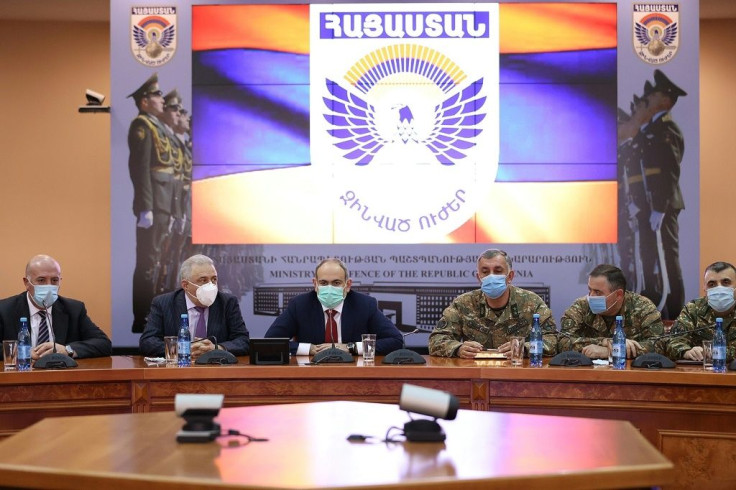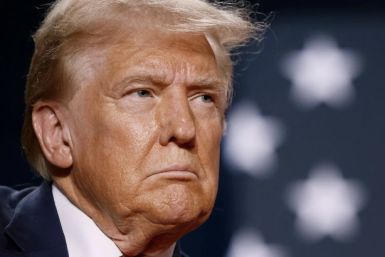Armenia PM Calls Snap Polls To Defuse Crisis
Armenia's embattled Prime Minister Nikol Pashinyan on Thursday announced a snap election in a bid to defuse a political crisis that has shaken the country following last year's military defeat to Azerbaijan.
He has faced calls to resign since signing a November peace deal brokered by Russia that ended weeks of fighting for control of the mountainous Nagorno-Karabakh region in Azerbaijan.
Yerevan's humiliating defeat at the hands of Azerbaijan's technologically superior army spurred mass protests in the impoverished ex-Soviet republic on the borders of Turkey and Iran.
Last month Pashinyan fired the country's most senior military official, accusing the army chief of staging a coup after he urged the prime minister to resign.
The spat sparked massive demonstrations, with Pashinyan's supporters and his opponents flooding the streets of the capital.
In an effort to ease weeks of tensions that saw his critics set up barricades and camp outside government buildings, the prime minister on Thursday called an early vote.

"Snap parliamentary elections will be held on June 20," Pashinyan wrote on Facebook.
He said the decision was taken after talks with members of the opposition and President Armen Sarkisian, who has also asked for Pashinyan to resign.
A fresh vote in June, Pashinyan said, is "the best way out of the current internal political situation".
Prominent members of the opposition, who have been loudly demanding Pashinyan's resignation and leading street demonstrations against his rule, welcomed the announcement.
"I said several days ago that we need a new government so that our homeland overcomes the current tough situation," Gagik Tsarukyan, the leader of opposition Prosperous Armenia party, wrote on Facebook.

"Snap parliamentary polls are the only legitimate way to achieve this."
Edmon Marukyan, leader of the opposition Bright Armenia party, said the decision to hold June elections was "acceptable to us".
The opposition will hope to make gains to shift Pashinyan's large majority in parliament. His My Step Alliance holds 83 seats against the opposition's 49.
Analysts said Pashinyan -- who will have to step down by April 30 under under election laws -- would likely retain his grip on power after the election.
"Pashinyan and his team have a very good chance of forming the next government, either independently or in a coalition with other parties," analyst Boris Navsardyan told AFP.
But political expert Vigen Hakobyan said Pashinyan's party will "most likely have to set up a coalition with other parties".
Pashinyan has dismissed repeated opposition calls to stand down and insisted he handled the war correctly.
Earlier Thursday, he defied a court ruling to reinstate the military commander who had called for him to resign, saying the order was unconstitutional.
Armenia's military, equipped with ageing Soviet-era hardware, struggled to hold ground it had controlled for three decades when clashes broke out against Azerbaijan's better-equipped army in Nagorno-Karabakh in September.
After six weeks of fighting that claimed around 6,000 lives, the ceasefire agreement signed by Pashinyan forced Armenia to cede swathes of territory to Azerbaijan.
Azerbaijan had already regained control of several districts around Nagorno-Karabakh that the region's separatist forces had seized in the 1990s war, including the strategically and symbolically important town of Shusha.
Pashinyan at the time said he had no choice but to agree or see his country's forces suffer even bigger losses.
The 45-year-old former newspaper editor came to power spearheading peaceful protests in 2018 and initially brought a wave of optimism to Armenia.
© Copyright AFP 2024. All rights reserved.











